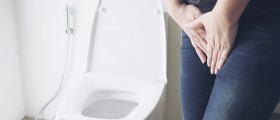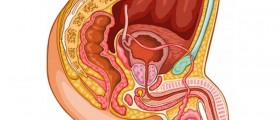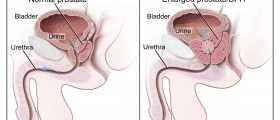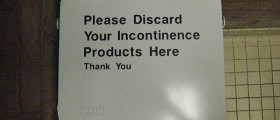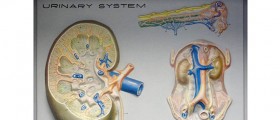I am 16 years old, born female but 5 months on 80 MG (0.4 ML) of Testosterone (taken weekly), not sexually active.
For the last few years, I have had a small problem where I feel a need to pee even though I physically can't. I used to be able to just pull up my pants and forget about the feeling but recently, the feeling has gotten worse and more persistent. As I type this, I am sitting on my toilet with a strong need to urinate with nothing coming out. I have had pee samples taken with no signs of infection and doctors can't give me a reason. It doesn't hurt when I pee, but it sometimes, when a little pee does come out, feels very uncomfortable!!
The feeling doesn't stop until it just does, until I am able to get ALL urine out of my bladder, or until the feeling is so little again that I can go on with my day. My recent doctor tells me that he thinks it is because of my Testosterone and I need to train my bladder but the problem is so bad that I have had serious thoughts about wearing a diaper to help calm my mind with this never-ending need to pee.
I can sit on a toilet for hours and have no need to use it until I stand up, to which I am pulling my pants down again to pee a small amount and wait again. It affects me from hanging out with friends, going shopping, and even going to class! I don't want this to be my life and I have a job interview tomorrow but I'm afraid I will have to turn down the job for my bladder. Please, I've looked everywhere and I need help.
Loading...
Hello.
It sounds like you're experiencing a challenging and distressing situation, and I'm sorry to hear that it's impacting your daily life. Persistent urinary symptoms can have various causes, and it's crucial to work closely with healthcare professionals to determine the underlying issue and find the appropriate treatment.
Here are a few potential reasons for your symptoms:
-
Bladder Spasms: Testosterone can affect the muscles in the body, including the bladder muscles. This may cause bladder spasms, leading to the sensation of needing to pee even when the bladder is not full.
-
Urinary Tract Infection (UTI): While you mentioned that urine samples showed no signs of infection, it's essential to rule out a UTI as it can cause similar symptoms. Sometimes, recurrent or chronic UTIs may require further investigation.
-
Neurological Issues: Certain neurological conditions or nerve damage can lead to abnormal bladder sensations and urination patterns.
-
Interstitial Cystitis (IC): IC is a chronic condition that causes bladder pain and a frequent urge to urinate.
Given the severity of your symptoms, it's essential to seek further evaluation and possibly a second opinion from a urologist or a specialist in urology. They can conduct more comprehensive tests, including urodynamic studies, to evaluate your bladder function and identify any underlying issues. In some cases, imaging studies such as ultrasounds or CT scans may also be helpful.
In the meantime, here are a few tips that may help manage your symptoms:
-
Stay Hydrated: It may seem counterintuitive, but staying hydrated is essential for overall bladder health. Avoiding excessive caffeine and alcohol may also be beneficial.
-
Pelvic Floor Exercises: Pelvic floor exercises, also known as Kegel exercises, can help strengthen the muscles around the bladder and may provide some relief.
-
Scheduled Voiding: Try setting a regular schedule for urination, even if you don't feel the urge. This can help train your bladder and create a more predictable pattern.
-
Relaxation Techniques: Stress and anxiety can exacerbate bladder symptoms. Practicing relaxation techniques, such as deep breathing or meditation, may help reduce these factors' impact.
-
Avoid Holding Urine: If you feel the need to urinate, try to go as soon as possible. Holding urine for extended periods can worsen bladder symptoms.
Good luck.
Loading...



